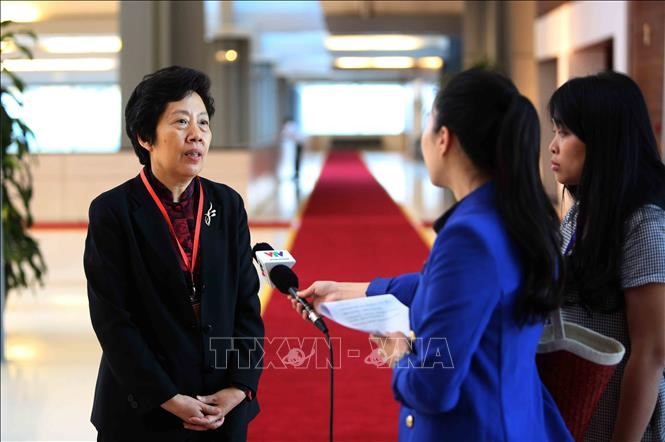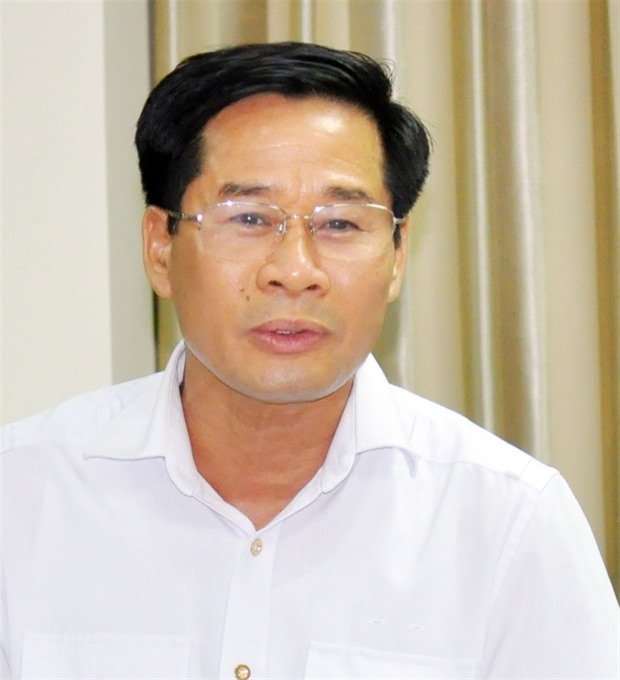.jfif) Opinion
Opinion

On the sidelines of the ongoing 14th assembly of the Asian Organisation of Supreme Audit Institutions in Hà Nội, Vietnam News Agency reporters talked to delegates about fostering co-operation between members and the importance of environmental auditing.
86333016PM.JPG) |
| Dr. Harib Saeed Al Amimi, President of the State Audit Institution of the United Arab Emirates, Chair of International Organisation of Supreme Audit Institutions (INTOSAI). — VNS Photo Trọng Kiên |
On the sidelines of the ongoing 14th assembly of the Asian Organisation of Supreme Audit Institutions in Hà Nội, Vietnam News Agency talked to delegates about fostering co-operation between members and the importance of environmental auditing.
Dr. Harib Saeed Al Amimi, President of the State Audit Institution of the
As the chair of INTOSAI, what do you think ASOSAI should do to enhance the co-operation among Supreme Audit Institutions (
INTOSAI is an international organisation which has more than 198 members of different audit institutions, which makes INTOSAI a rich organisation with many experiences in different fields of auditing, namely financial, performance, IT and environmental audits.
There are many fields in which INTOSAI and ASOSAI can co-operate. In terms of knowledge sharing, we have much to learn from each other, because I understand that ASOSAI is a very active and professional body with many potential experiences. These experiences can be shared among members of the two organisations and we can benefit from each other’s experiences.
Fortunately, I have had the chance to visit many training institutions and academies in the ASOSAI region. I was very impressed by the training advancements in these institutions. I think this kind of arrangement can benefit other auditing members, in terms of training and raising the professionalism of members of the two organisations.
In terms of audit standards, I think there is a very active participation from the ASOSAI region and the professional arrangement taken care of by the INTOSAI.
I think this will benefit all
The State Audit of Việt
We have seen very active participation from the Việt Nam State Audit institution and I think that under the leadership of my colleague, Dr Hồ Đức Phớc, this co-operation will develop in the near future.
In terms of capacity building, in terms of exchanging knowledge from the Vietnamese state and the organisations of the ASOSAI and INTOSAI, the Vietnamese will also have the chance to learn and expand their knowledge in different fields of audit from their counterparts and peers. In turn, Việt
Hu Zejun, Auditor General of China’s National Audit Office
 |
| Hu Zejun |
The theme of this year, Environmental Auditing for Sustainable Development, is not only meaningful in the Asian region but also has global relevance in protecting worldwide ecology and ensuring the long-term growth of humanity as a whole.
The Chinese Government always pays close attention to protecting the environment, and the
Since 1998, an environmental audit division has been established in
For example, I think there needs to be consistent and unified auditing standards and methodologies amongst all local audit offices.
When we conducted the environmental auditing of the Yangtze river basin for the first time ever last year, which looked into ecological and environmental protection efforts in the
In addition, we have also promoted the integration of IT advancements in auditing works. For environmental auditing, we made full use of our information systems and remote sensing satellite technology.
Also, we actively build measures to “universalize” the environmental auditing processes, as well as enhance the capacity of our environmental auditors who will play an important role in maintaining the integrity of the environment.
Lê Đình Thăng, chief auditor from the State Audit of Việt
 |
| Lê Đình Thăng |
The State Audit of Việt
This is a new field in our auditing activities in Việt
Training auditors is also very important, especially in environmental auditing. This is one of our key tasks in the coming years.
The message from the Vietnamese Government is very clear: we will never pursue economic development at the expense of the environment. That has also set a special task for the State Audit of Việt
Recently, we have talked a lot about the import of scrap from abroad. This will also be part of our audit agenda in the coming years. — VNS




